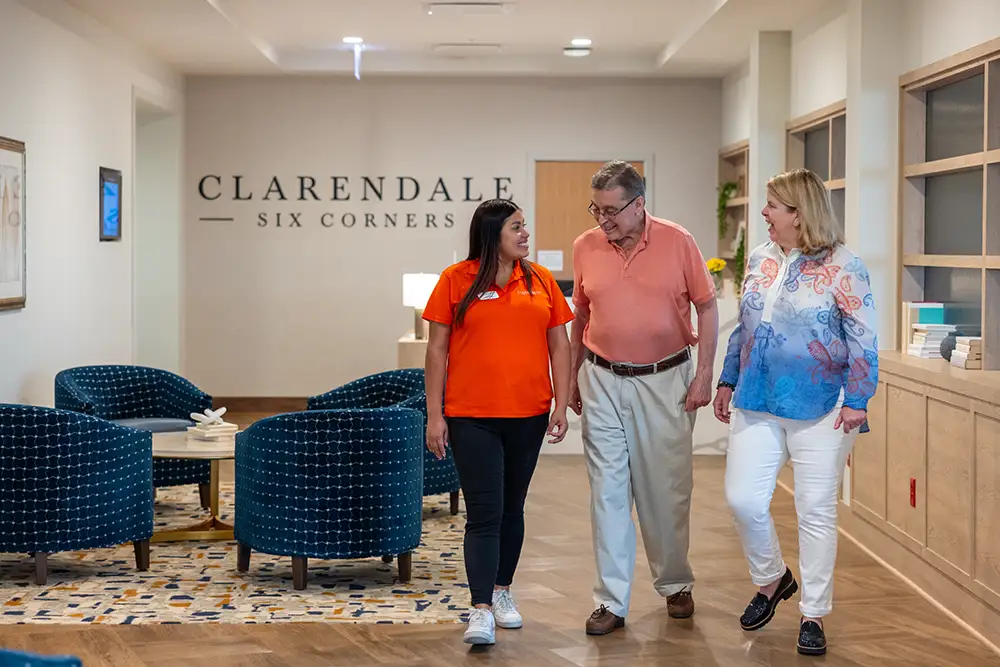Who Qualifies for Assisted Living: Understanding Independent Living vs. Assisted Living
Choosing the right living arrangement for yourself or a loved one is an important decision, especially as we age and our needs change.
Assisted living offers support with activities of daily living (ADLs) while allowing individuals to maintain their independence. But who qualifies for assisted living?
In this blog, we’ll explore the qualifications for assisted living, what sets it apart from independent living, and how you can determine if it’s the right fit.

Qualifications for Assisted Living
Assisted living is designed for seniors who need help with some activities of daily living (ADLs) but still maintain a level of independence. These communities offer support with personal care, meals, housekeeping, and social activities in a comfortable, community-oriented setting.
Basic Requirements for Assisted Living
To qualify for assisted living, individuals generally need to:
- Require assistance with ADLs, like eating, bathing, dressing, grooming, and mobility.
- Be in stable health but need help with medication management or health monitoring.
- Not require constant, intensive medical care. For those who need 24-hour skilled nursing care, a skilled nursing facility would be a more appropriate option.
The level of help needed with activities of daily living (ADLs) determines eligibility for assisted living and the type of care received. Assisted living supports seniors who need help with some ADLs but still maintain independence.
- Need for Assistance: Seniors needing help with ADLs may qualify, with care plans varying based on individual needs.
- Personalized Care Plans: Communities assess ADL needs upon admission and update care plans as health conditions change.
- Balancing Independence and Care: The goal is to support residents while promoting independence in personal tasks.
- Transition Over Time: As ADL needs change, care plans adjust, allowing a smooth transition from independent living to assisted living.
Seniors qualifying for assisted living must maintain stable health, even if they need help with ADLs. Assisted living communities monitor chronic conditions like diabetes or high blood pressure and provide medication management to ensure health remains stable. Healthcare staff offer necessary support to prevent health issues from requiring more intensive care.
There are no strict age requirements for assisted living, but it is typically for older adults, often aged 65 and over, who need some level of assistance with daily tasks.
Who Doesn’t Qualify for Assisted Living?
Assisted living is not suitable for everyone. Some individuals may require more intensive medical care than an assisted living community can provide.
Individuals Who May Not Qualify
While assisted living is a great option for many seniors seeking support with daily tasks in a social, home-like setting, it’s not the right solution for everyone. Some individuals may require a higher level of care or specialized services beyond what assisted living communities typically offer.
- Alzheimer’s Disease or Other Forms of Advanced Dementia: Those with severe cognitive impairments may need specialized memory care or skilled nursing care rather than the less intensive assistance provided in an assisted living setting.
- Severe Medical Conditions: Residents who need frequent medical interventions, continuous monitoring or complex medical care (such as ventilator support) would likely require a nursing home or hospital care.
- Higher Level of Care Needs: Individuals requiring full-time, hands-on assistance with most or all ADLs may also not qualify for assisted living, as the care level may surpass what the community can provide.
In these cases, individuals might be better suited for a skilled nursing community or a specialized memory care unit that offers more intensive care.
Memory Impairments and Assisted Living
Memory impairments, such as mild cognitive impairment or early-stage dementia, don’t necessarily disqualify someone from assisted living. In fact, many communities offer specialized memory care services within their assisted living settings.
Assisted living communities may provide specialized care and support for individuals with Alzheimer’s or other forms of early-stage dementia, including structured routines, cognitive therapies, and a safe environment.
Requirements To Meet After Qualifying
Once you’ve qualified for assisted living, there are several steps to take before moving in. The following steps ensure that both the resident and the community are prepared to meet the person’s care needs.
- Ongoing Assessments: Assisted living communities regularly assess the health and well-being of their residents. This ensures each individual is receiving the appropriate level of care based on their changing needs.
- Documentation and Health Checks: Documentation of the person’s health conditions, medications, and any special care requirements will be necessary. These details help caregivers provide the best possible care.
- Support From Family and Healthcare Providers: The process often involves the collaboration of healthcare providers, family members, and financial planners to ensure the right level of care is provided, and the financial aspects are managed.
The Costs of Assisted Living
When exploring assisted living options, it’s important to understand the potential costs involved and how they’re typically covered. Pricing can vary based on factors like location, the type of residence, and the level of care required. Here are some key considerations:
- Personal Savings and Insurance: Many people use a combination of personal savings, long-term care insurance, and government programs like Medicaid to help pay for assisted living. However, it’s important to note that Medicaid may only cover certain costs in some states and communities.
- Cost Structures: Assisted living communities typically charge based on room size, services provided, and level of care. Some offer all-inclusive pricing, while others charge a fee for additional services, such as medical monitoring or personal care
What Is Independent Living?
Independent living is a lifestyle option for active seniors who want to enjoy a maintenance-free home with access to social engagement, wellness programs, and convenient amenities. These communities provide a secure and vibrant environment where residents can focus on enjoying life without the burdens of home upkeep.
Key Features of Independent Living
- Rightsized Residences: Rightsized residences offer comfortable, modern apartments designed for easy living with convenient amenities and maintenance-free living.
- Delicious Dining: Enjoy chef-prepared meals with a variety of nutritious and flavorful options, often served in restaurant-style settings.
- Housekeeping and Home Maintenance: Leave the chores behind with regular housekeeping, linen services, and maintenance-free living.
- Wellness and Fitness: Stay active with fitness centers, group exercise classes, walking trails, and wellness programs designed for seniors.
- Social Engagement: Connect with peers through clubs, interest groups, community events, and outings.
- Amenities and Services: Benefit from concierge services, transportation, salon and spa treatments, and other resort-style conveniences.
Independent living is ideal for seniors who want an active, fulfilling lifestyle with opportunities for socializing, wellness, and personal growth while maintaining their independence.
How Clarendale Six Corners Supports Residents in Both Independent Living and Assisted Living
At Clarendale Six Corners, we offer flexible living options to meet diverse needs, from independent living to assisted living. Our community allows for a seamless transition between levels of care as needs change, ensuring residents receive the support they require without leaving the familiar surroundings they love.
We provide comprehensive care, including assistance with ADLs and specialized memory care, tailored to each resident for a fulfilling and safe lifestyle. If you or a loved one are considering assisted living or independent living, contact us today to explore the perfect senior living option for you. Our compassionate team is here to help you find the ideal care and community!

